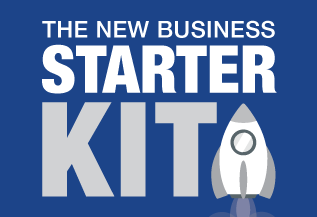FBT 2023 and hybrid workforces with Sheridans
Will your hybrid workforce leave you with a FBT bill?
What every employer should know about FBT in 2023
Make sense of FBT in 2023 as covid exemptions end and work from home adds new challenges to your compliance.
Getting FBT right? It’s complicated.
March 31st marks the end of the Fringe Benefits Tax (FBT) year.
If FBT has you scratching your head, you’re not alone. The ATO admits it's complex, saying, “We recognise complexity in the FBT law can hamper employers’ engagement with the system.” Moreover, in 2023, possible changes to covid-related exemptions for remote workforces may add another layer of complexity. In this article, we get you up to speed to ensure your hybrid workforce is FBT compliant.
|
Fringe benefits tax (FBT) is a tax paid by employers on certain benefits provided to their employees, their families, or other
associates. Separate from income tax, it's calculated on the taxable value of the fringe benefit. As an employer, you must self-assess
your FBT liability from April 1st to March 31st. |
Covid and FBT 2023
When covid lockdowns hit, business owners scrambled to set up hybrid workforces. You may have acted quickly to provide your employees with work from home benefits without considering the FBT implications.
FBT in 2023 will be even more complex – with some covid exemptions possibly changing or ending on March 31st. Get the ATO’s rundown on covid and FBT here.
The FBT gapThe ATO has recently announced the ‘FBT gap’ is over $1 billion. Employers will be targeted to ensure those liable for FBT are lodging and paying the right amount.Planned action to reduce the gap includes:
|
FBT for employers with remote or hybrid workforces
Which benefits are exempt from FBT, and which are liable for the tax?
| Laptops, printers, smartphones, other portable electronic devices and tools of trade |
Exempt from FBT if they are primarily used for work-related purposes. Note: desktop computers are not considered portable electronic
devices. |
| General office equipment including desks, chairs, cabinets, monitors and stationery |
If you LENT office equipment during temporary WFH arrangements, office equipment is likely exempt from FBT. For ongoing WFH
arrangements, the benefit may also be exempt, or the taxable value may be reduced by the otherwise
deductible rule (ODR). If you have GIVEN office equipment with a taxable value of less than $300, the item is likely exempt from FBT, or the ODR may reduce its taxable value. For equipment $300 or more, FBT is likely payable. |
| Phone and internet access |
The minor
benefits exemption
(which applies to benefits under $300) or the ODR may apply if you pay for your employee’s phone and internet access. |
| Counselling and healthcare that supports WFH |
Counselling services or healthcare provided to support employees working from home may be exempt from FBT per the existing rules for
work-related counselling. Covering concerns such as health and safety, stress management, relationships, retirement, and physical health
including dentistry, optometry, and more, work-related counselling seeks to improve or maintain the quality of your employees’ work
performance. Also exempt from FBT are car benefits, expense payment benefits or property benefits associated with work-related preventative health care. For example, a sit-stand desk purchased to prevent or manage back pain. Note: exemptions require the recommendation of a legally qualified medical practitioner or nurse. |
Other benefits liable for FBT
Other benefits liable for FBT include:
- allowing an employee to use a work car for private purposes – including any parking
- gym memberships
- entertainment such as free tickets to concerts
- food and drink
- providing a discounted loan
- giving benefits under a salary sacrifice arrangement.
Ask your accountant about FBTYour accountant can help you sift through the murky waters of FBT to ensure you remain compliant. Schedule an FBT catch up with your accountant and ask:
|
Don’t go it alone
A trusted accountant can help with staying compliant while reducing your FBT liability. Save yourself time, frustration and risk and get professional help to manage your FBT return.














